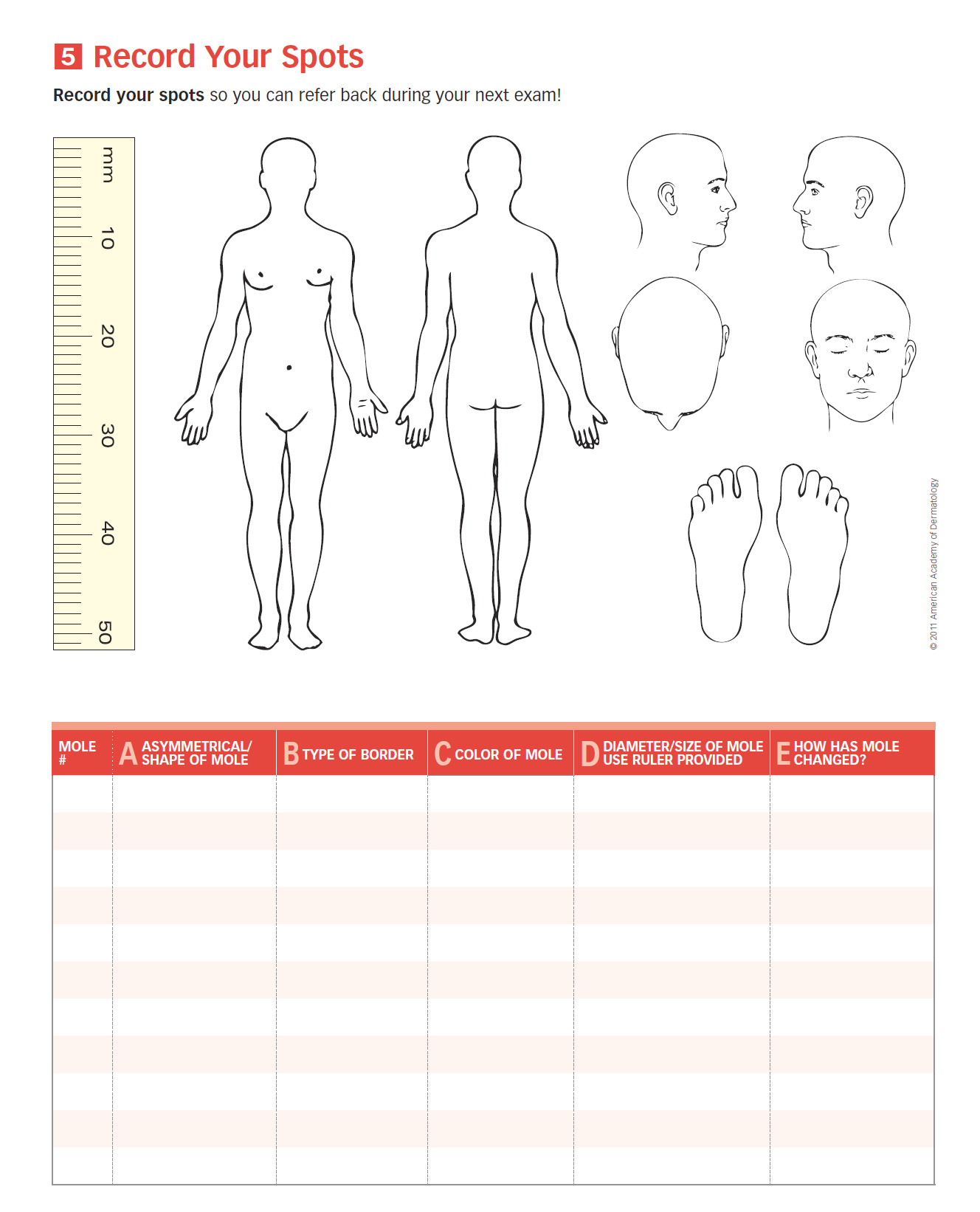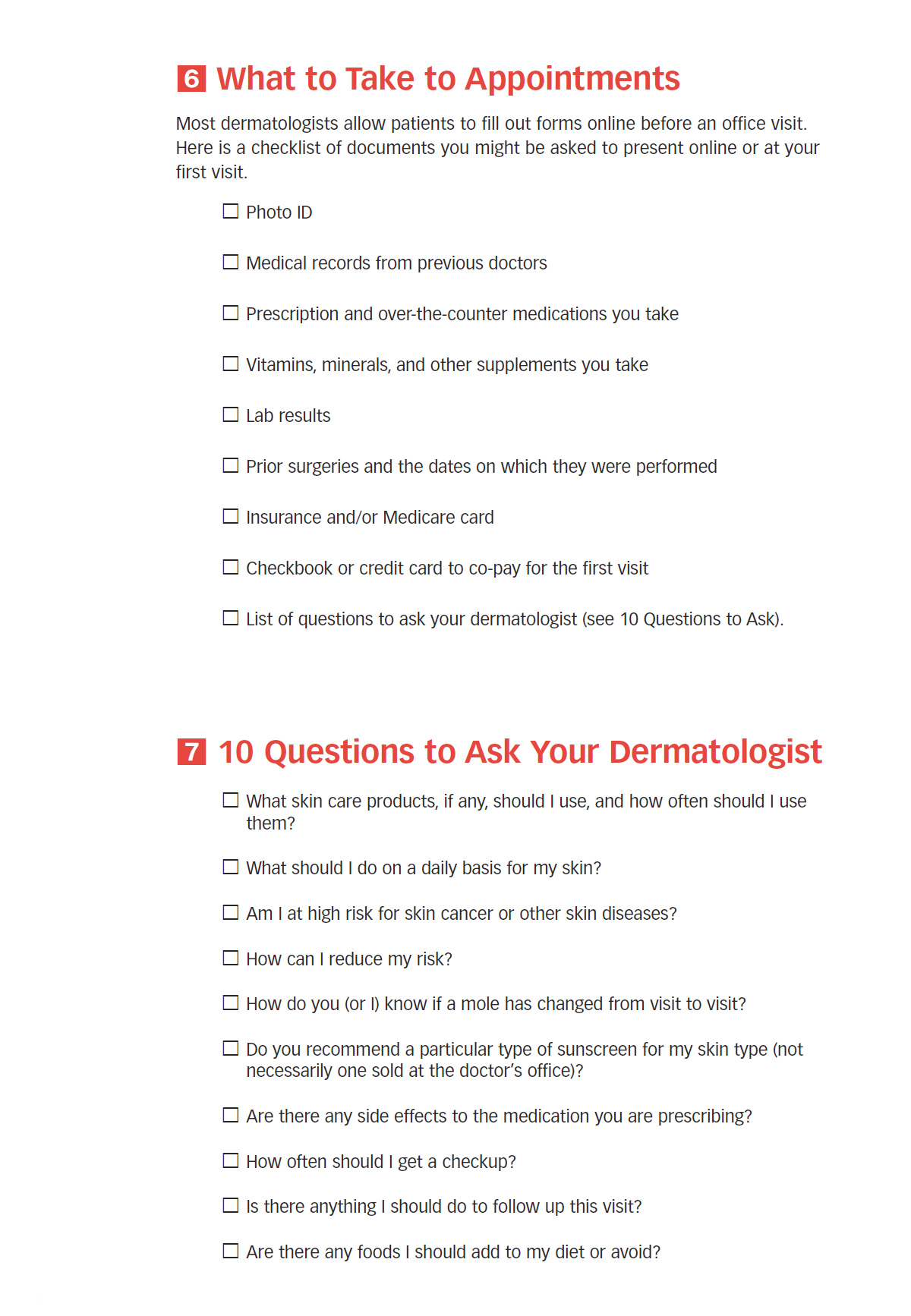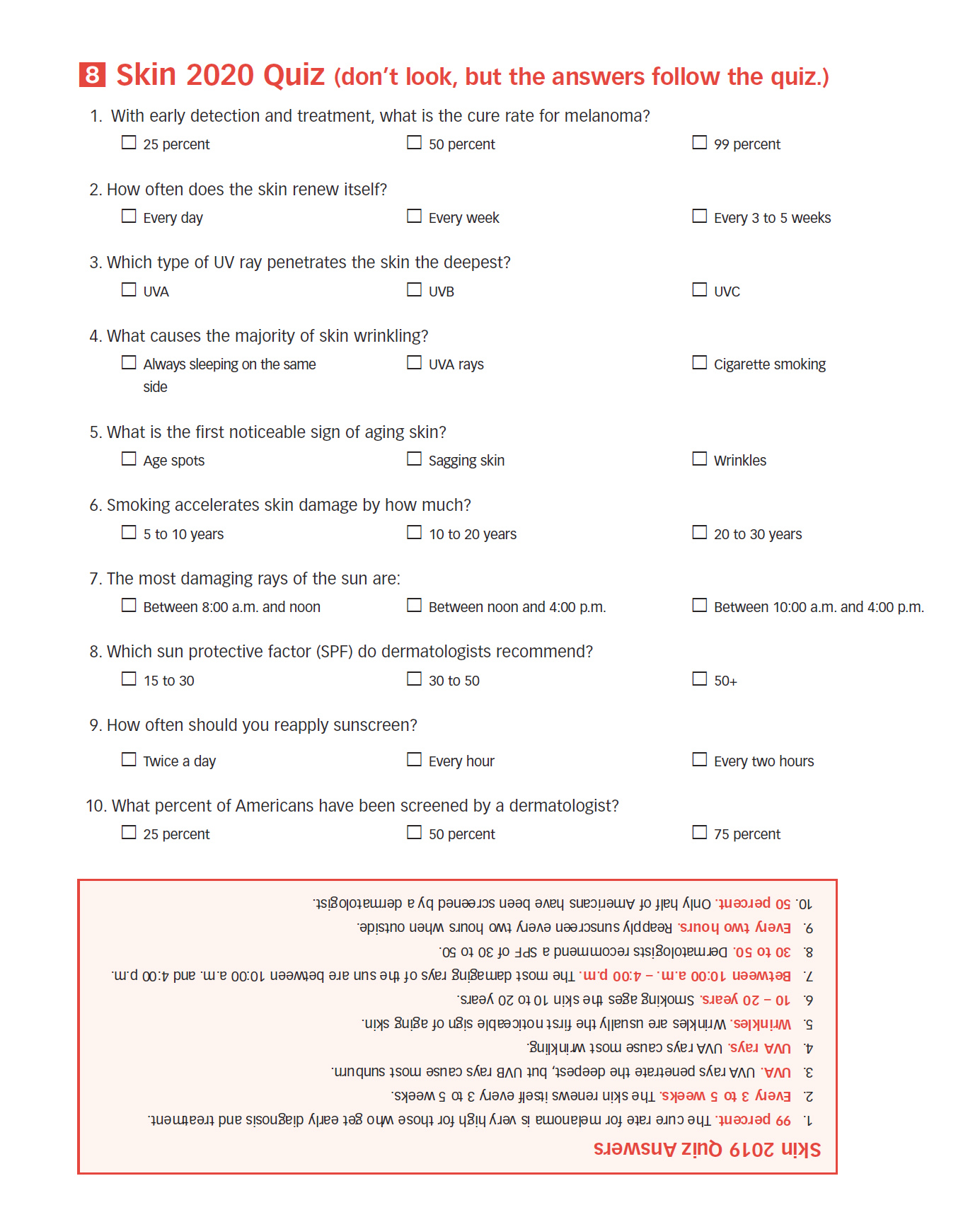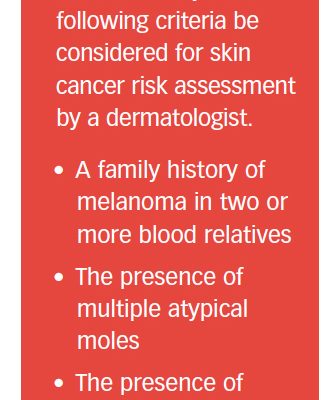7. Self-Assessment: Detection & Protection
Being generally aware that skin cancer is dangerous is not enough to protect a person. Systematically monitoring, recording, and taking action provides extra layers of detection and protection.
 This chapter includes eight worksheets to help you evaluate your skin’s health and proactively do something about it. It begins with a Skin Care Assessment and ends with the 2020 Skin Quiz.
This chapter includes eight worksheets to help you evaluate your skin’s health and proactively do something about it. It begins with a Skin Care Assessment and ends with the 2020 Skin Quiz.
- Skin Care Assessment is a 10-item list of things you do or don’t do to cleanse, moisturize, or protect your skin. 10 is a perfect score. 1 is not.
- Skin Condition Checklist asks you to check the words that apply to skin condition symptoms (if any), location, duration, severity, and contributing factors.
- Monthly Self-Examinations illustrates how to examine your skin so you can identify areas or spots of concern for your health-care provider.
- The A-B-C-D-E of Melanoma illustrates the changes that a spot can go through that might indicate the presence of melanoma.
- Record Your Spots allows you to measure and describe suspicious spots by shape, symmetry (or lack of it), color, diameter, and change.
- What to Take to Appointments is a reminder of things to take with you to an appointment or that you might be asked about online prior to an appointment.
- 10 Questions to Ask Your Dermatologist helps you prepare for your first or next appointment.
- Skin 2020 Quiz tests your knowledge about general care and how to reduce skin cancer risk.Take the quiz then check your answers to learn more.fgffgfgfgfg





The post 7. Self-Assessment: Detection & Protection appeared first on University Health News.
Read Original Article: 7. Self-Assessment: Detection & Protection »


